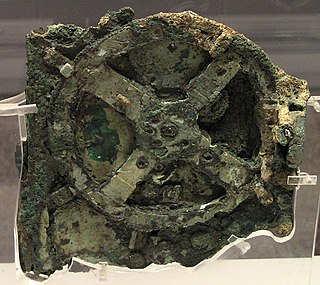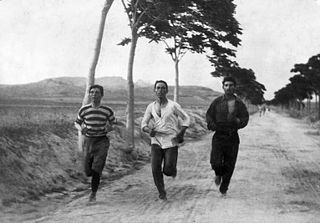Births
| | This section is empty. You can help by adding to it. (January 2014) |
| Millennium: | 1st millennium BC |
|---|---|
| Centuries: | |
| Decades: | |
| Years: |
| 776 BC by topic |
| Politics |
|---|
| Categories |
| Gregorian calendar | 776 BC DCCLXXV BC |
| Ancient Egypt era | XXIII dynasty, 105 |
| Ancient Greek era | 1st Olympiad (victor )¹ |
| Assyrian calendar | 3975 |
| Balinese saka calendar | N/A |
| Bengali calendar | −1368 |
| Berber calendar | 175 |
| Buddhist calendar | −231 |
| Burmese calendar | −1413 |
| Byzantine calendar | 4733–4734 |
| Chinese calendar | 甲子年 (Wood Rat) 1921 or 1861 — to — 乙丑年 (Wood Ox) 1922 or 1862 |
| Coptic calendar | −1059 – −1058 |
| Discordian calendar | 391 |
| Ethiopian calendar | −783 – −782 |
| Hebrew calendar | 2985–2986 |
| Hindu calendars | |
| - Vikram Samvat | −719 – −718 |
| - Shaka Samvat | N/A |
| - Kali Yuga | 2325–2326 |
| Holocene calendar | 9225 |
| Iranian calendar | 1397 BP – 1396 BP |
| Islamic calendar | 1440 BH – 1439 BH |
| Javanese calendar | N/A |
| Julian calendar | N/A |
| Korean calendar | 1558 |
| Minguo calendar | 2687 before ROC 民前2687年 |
| Nanakshahi calendar | −2243 |
| Thai solar calendar | −233 – −232 |
| Tibetan calendar | 阳木鼠年 (male Wood-Rat) −649 or −1030 or −1802 — to — 阴木牛年 (female Wood-Ox) −648 or −1029 or −1801 |
The year 776 BC is largely known for being the first year of the Attic calendar, also known as the Ancient Greek calendar or the Olympiad era.
| | This section is empty. You can help by adding to it. (January 2014) |

The Summer Olympic Games, also known as the Games of the Olympiad, and often referred to as the Summer Olympics, is a major international multi-sport event normally held once every four years. The inaugural Games took place in 1896 in Athens, Greece, and the most recent edition was held in 2021 in Tokyo, Japan. The International Olympic Committee (IOC) is responsible for organising the Games and for overseeing the host city's preparations. The tradition of awarding medals began in 1904; in each Olympic event, gold medals are awarded for first place, silver medals for second place, and bronze medals for third place. The Winter Olympic Games were created out of the success of the Summer Olympic Games, which are regarded as the largest and most prestigious multi-sport international event in the world.

Year 393 (CCCXCIII) was a common year starting on Saturday of the Julian calendar. At the time, it was known as the Year of the Consulship of Augustus and Augustus. The denomination 393 for this year has been used since the early medieval period, when the Anno Domini calendar era became the prevalent method in Europe for naming years.

The 1896 Summer Olympics, officially known as the Games of the I Olympiad and commonly known as Athens 1896, was the first international Olympic Games held in modern history. Organised by the International Olympic Committee (IOC), which had been created by French aristocrat Pierre de Coubertin, it was held in Athens, Greece, from 6 to 15 April 1896.
Year 484 BC was a year of the pre-Julian Roman calendar. At the time, it was known as the Year of the Consulship of Mamercus and Vibulanus. The denomination 484 BC for this year has been used since the early medieval period, when the Anno Domini calendar era became the prevalent method in Europe for naming years.

The 2004 Summer Olympics, officially the Games of the XXVIII Olympiad and also known as Athens 2004, were an international multi-sport event held from 13 to 29 August 2004 in Athens, Greece. The Games saw 10,625 athletes compete, some 600 more than expected, accompanied by 5,501 team officials from 201 countries, with 301 medal events in 28 different sports. The 2004 Games marked the first time since the 1996 Summer Olympics that all countries with a National Olympic Committee were in attendance, and also marked the first time Athens hosted the Games since their first modern incarnation in 1896 as well as the return of the Olympic games to its birthplace. Athens became one of only four cities at the time to have hosted the Summer Olympic Games on two occasions. A new medal obverse was introduced at these Games, replacing the design by Giuseppe Cassioli that had been used since 1928. The new design features the Panathenaic Stadium in Athens rectifying the long-running mistake of using a depiction of the Roman Colosseum rather than a Greek venue. The 2004 Games was the first of two consecutive Olympic games to be held in Southern Europe since the 1992 Summer Olympics in Barcelona, Spain, and was followed by the 2006 Winter Olympics in Turin, Italy.

The Antikythera mechanism is an Ancient Greek hand-powered orrery, described as the oldest example of an analogue computer used to predict astronomical positions and eclipses decades in advance. It could also be used to track the four-year cycle of athletic games which was similar to an Olympiad, the cycle of the ancient Olympic Games.
The 1906 Intercalated Games or 1906 Olympic Games was an international multi-sport event that was celebrated in Athens, Greece. They were at the time considered to be Olympic Games and were referred to as the "Second International Olympic Games in Athens" by the International Olympic Committee. However, the medals that were distributed to the participants during these games are not officially recognised by the Olympic Committee and are not displayed with the collection of Olympic medals at the Olympic Museum in Lausanne, Switzerland.

An olympiad is a period of four years, particularly those associated with the ancient and modern Olympic Games.

The year 680 BC was a year of the pre-Julian Roman calendar. In the Roman Empire, it was known as year 74 Ab urbe condita. The denomination 680 BC for this year has been used since the early medieval period, when the Anno Domini calendar era became the prevalent method in Europe for naming years.
A calendar era is the period of time elapsed since one epoch of a calendar and, if it exists, before the next one. For example, it is the year 2022 as per the Gregorian calendar, which numbers its years in the Western Christian era.
In astronomy, an octaeteris is the period of eight solar years after which the moon phase occurs on the same day of the year plus one or two days.
Various ancient Greek calendars began in most states of ancient Greece between Autumn and Winter except for the Attic calendar, which began in Summer.

Spyridon Louis, commonly known as Spyros Louis, was a Greek water carrier who won the first modern-day Olympic marathon at the 1896 Summer Olympics. Following his victory, he was celebrated as a national hero.

Dr. Gary Wayne Hall Sr. is an American former competition swimmer, three-time Olympic medalist, and former world record-holder in five events. He is also an ophthalmologist.

The FIBA Basketball World Cup, also known as the FIBA World Cup of Basketball or simply the FIBA World Cup, between 1950 and 2010 known as the FIBA World Championship, is an international basketball competition contested by the senior men's national teams of the members of the International Basketball Federation (FIBA), the sport's global governing body. It is considered the flagship event of FIBA.

The 1958 Asian Games, officially the Third Asian Games and commonly known as Tokyo 1958, was a multi-sport event held in Tokyo, Japan, from 24 May to 1 June 1958. It was governed by the Asian Games Federation. A total of 1,820 athletes representing 20 Asian National Olympic Committees (NOCs) participated in the Games. The program featured competitions in 13 different sports encompassing 97 events, including four non-Olympic sports, judo, table tennis, tennis and volleyball. Four of these competition sports – field hockey, table tennis, tennis and volleyball – were introduced for the first time in the Asian Games.

Coroebus of Elis was a Greek cook, baker, and athlete from Elis. He is remembered as the winner of the first recorded Olympics, which consisted of a single footrace known as the stade or stadion. He is frequently described as having won the first Olympic Games, but Eusebius and other ancient writers stated that he was simply the first recorded winner, variously placing the first games in the Heroic Age, 27 olympiads before Coroebus, or 13 olympiads before. Coroebus being the earliest winner known to Hippias, his is still reckoned the "1st Olympiad"; following Hippias's dating, his victory is generally placed in the summer of the year 776 BC. The stadium at Olympia was one stade long and the competition was still clothed in his time, naked competition beginning with Orsippus around 720 BC. For winning the race, Coroebus received an olive wreath and was later revered by the people of Elis, his grave still being known in the time of Pausanias.
Greece has risen to prominence in a number of sporting areas in recent decades. Football in particular has seen a rapid transformation, with the Greece national football team winning the UEFA Euro 2004. Many Greek athletes have also achieved significant success and have won world and olympic titles in numerous sports during the years, such as basketball, wrestling, water polo, athletics, weightlifting, with many of them becoming international stars inside their sports. The successful organisation of the Athens 2004 Olympic and Paralympic Games led also to the further development of many sports and has led to the creation of many world class sport venues all over Greece and especially in Athens. Greek athletes have won a total 161 medals for Greece in 17 different Olympic sports at the Summer Olympic Games, including the Intercalated Games, an achievement which makes Greece one of the top nations globally, in the world's rankings of medals per capital

The ancient Olympic Games were a series of athletic competitions among representatives of city-states and were one of the Panhellenic Games of Ancient Greece. They were held in honor of Zeus, and the Greeks gave them a mythological origin. The originating Olympic Games are traditionally dated to 776 BC. The games were held every four years, or Olympiad, which became a unit of time in historical chronologies. They continued to be celebrated when Greece came under Roman rule, 2nd century BC. Their last recorded celebration was in AD 393, under the emperor Theodosius I, but archeological evidence indicates that some games were still held after this date. The games likely came to an end under Theodosius II, possibly in connection with a fire that burned down the temple of the Olympian Zeus during his reign.

The marathon at the Summer Olympics is the only road running event held at the multi-sport event. The men's marathon has been present on the Olympic athletics programme since 1896. Nearly ninety years later, the women's event was added to the programme at the 1984 Olympics.